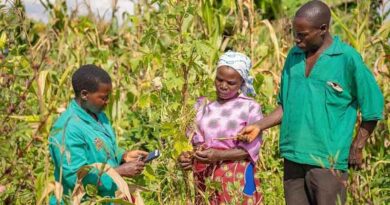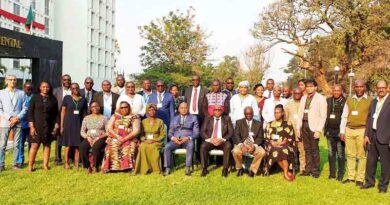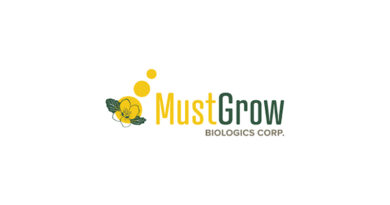CABI’s role in helping SADC Member States fight crop pests and diseases highlighted in FAO bulletin
01 February 2023, Africa: CABI’s role in helping 16 Southern African Development Community (SADC) Member States crop pests and diseases has been highlighted in a new bulletin published by the Food and Agriculture Organization of the United Nations (FAO).
The ‘Support Towards the Operationalization of the SADC Regional Agricultural Policy (STOSAR) bulletin’ reports how CABI – as one of six regional Centres of Excellence – has helped towards tackling hunger and food insecurity in the Southern Africa Region.
CABI started working with the STOSAR project in 2021 and has provided a broad range of technical support services to SADC countries towards the implementation of the SADC Regional Agricultural Policy.
A team of CABI scientists provided expertise on developing strategies to fight pests and diseases – including Maize Lethal Necrosis Disease (MLND), tomato leaf miner (Tuta (Phthorimaea) absoluta) and oriental fruit fly (Bactrocera dorsalis).
Other pests and diseases which were prioritized were the fall armyworm (Spodoptera frugiperda) and Banana Fusarium Wilt (Fusarium oxysporum f. sp. Cubense Tropical race 4 (Foc TR4)).
The work – which involved training on Pest Risk Analysis (PRA) and the implementation of Sanitary and Phytosanitary (SPS) measures – was conducted as part of the three-year-long EUR 9 million project funded by the European Union.
Countries that have benefited from the project included Angola, Botswana, Comoros, Democratic Republic of Congo, Eswatini, Lesotho, Madagascar, Malawi, Mauritius, Mozambique, Namibia, Seychelles, South Africa, Tanzania, Zambia and Zimbabwe.
In the bulletin, Patrice Talla, FAO Sub-regional Coordinator for Southern Africa, said, “This last quarter, the STOSAR project has seen the official launch of the SADC Agricultural Information Management System (AIMS), which will ensure that policymakers access valid data, critical to the development of sound, evidence-based, and need-driven policies.
“Accurate and reliable data helps us to focus on relevant problems and enables the allocation of constrained resources to where they are most needed.
“The exchange of knowledge, information and data not only supports FAO’s work for a world free of hunger, malnutrition and poverty but also contributes to the achievement of the United Nations Sustainable Development Goals (SDGs).”
The bulletin stresses that Member States remain on high alert – monitoring the incursion and spread of transboundary animal diseases through surveillance activities for foot-and-mouth disease, peste des petits, ruminants and highly pathogenic avian influenza.
The STOSAR project has developed tools, and supported and coordinated actions to build, sustain and improve regional and national pests and diseases preparedness and response capabilities.
CABI, for example, helped increase the capacity of countries in the SADC region to conduct PRA using the online CABI PRA decision support tools including the PRA Tool, the Horizon Scanning Tool and the Crop Protection Compendium.
A total of 144 National Plant Protection Organization (NPPO) staff from all 16 Member States benefited from two regional PRA trainings organized by CABI.
Other achievements attained under the STOSAR Project include an assessment of the SADC region’s plant health laboratories to establish their readiness for accreditation.
A report on the exercise highlighted the need for on-site training to meet the ISO17025:2017 standard, in addition to the need to strengthen documentation and source equipment to strengthen diagnostics.
CABI also provides free access/discounted rates for developing countries to access microbial identification services for a limited number of samples per Member Country.
Dr Ivan Rwomushana, who led the CABI team along with Dr MaryLucy Oronje, said, “The latest STOSAR bulletin shows how CABI has worked in collaboration to share its expertise in crop pests and disease management to help build the capacity of Member States to strengthen the linkages along the food value chain.
“This has included educating NPPOs on the various digital tools available – which provides vital data on how to manage crop pests and diseases which can severely impact upon the yields of smallholder farmers, their incomes and food security.”
Her Excellency Petra Pereyra, Ambassador of the European Union to the Republic of Botswana and the SADC, in the bulletin, said that STOSAR has improved the agricultural databases across the SADC Member States. She said they are now linked to the regional database to form the SADC Agricultural Information Management System (AIMS).
“I believe it will provide a consistent, standardized and reliable data reporting and analysis system that will be easily accessible to stakeholders and policymakers to make strategic decisions that positively improve access to export markets and unlock trade opportunities for SADC Member States,” she said.
The Ambassador added that moving forward the European Union will continue to support a strong gender dimension that “will be fully integrated at both strategic and operational levels.” Furthermore, a focus will also be placed on youth – not only as “beneficiaries but also as key change actors.”
(For Latest Agriculture News & Updates, follow Krishak Jagat on Google News)















